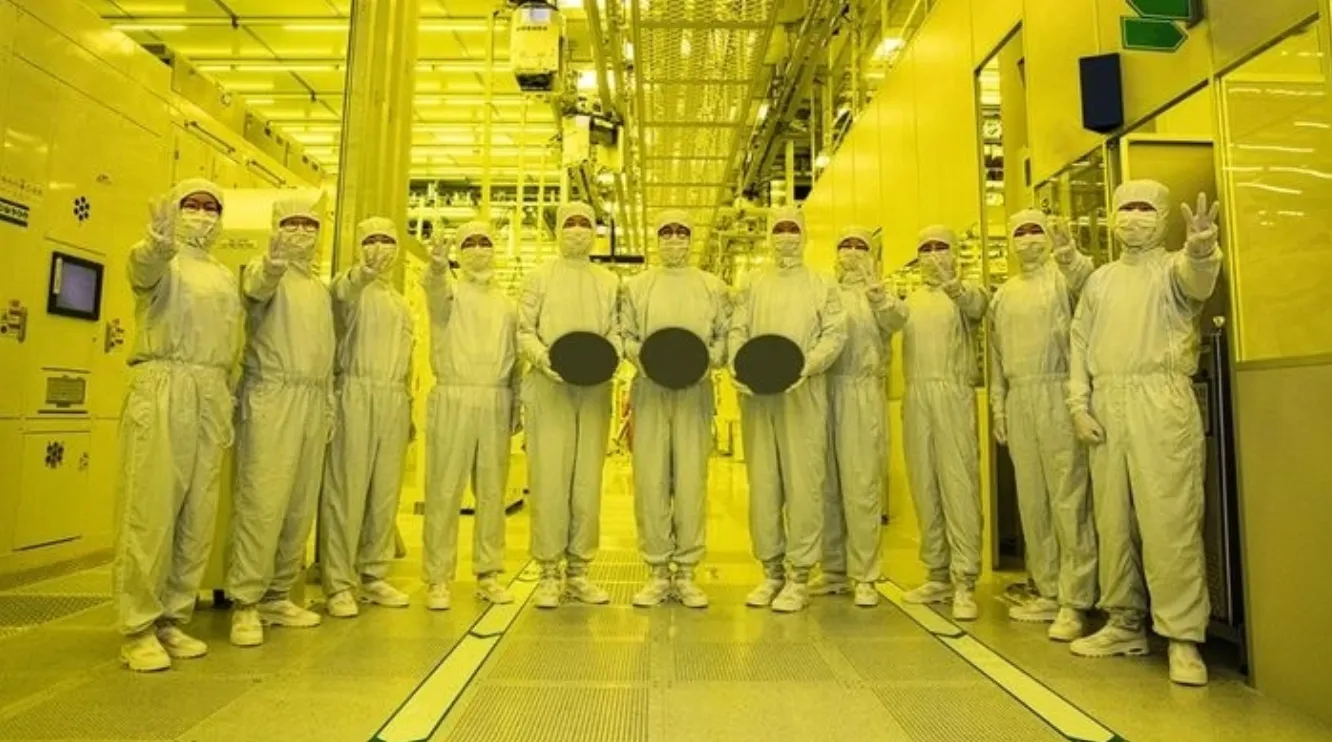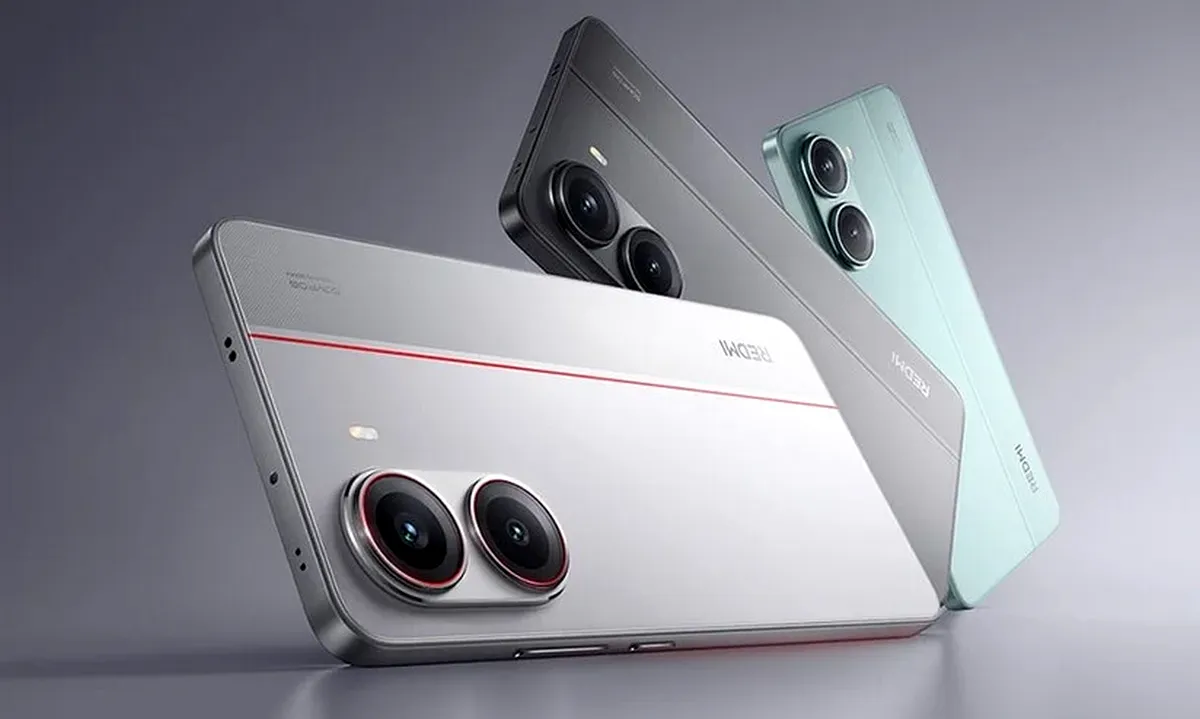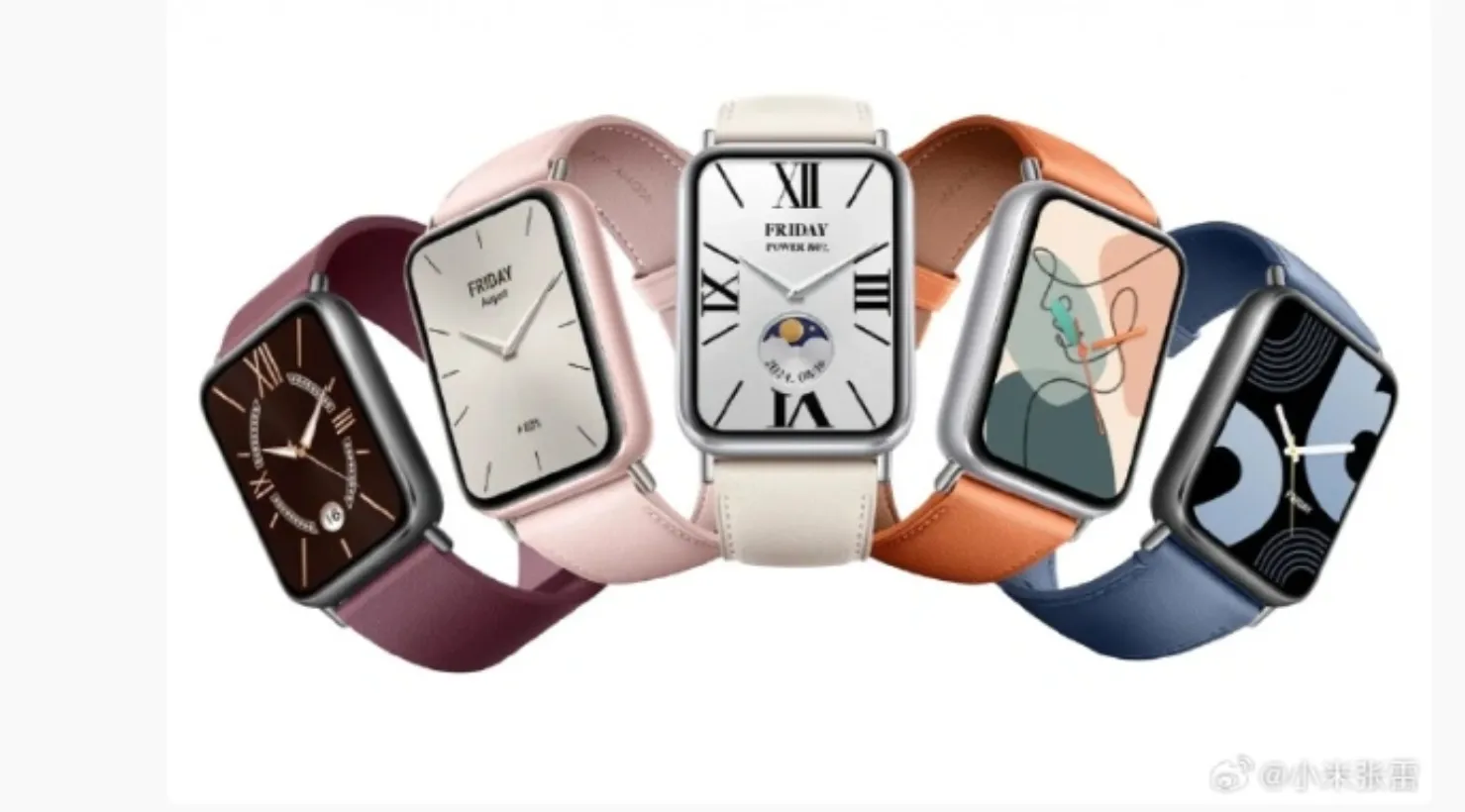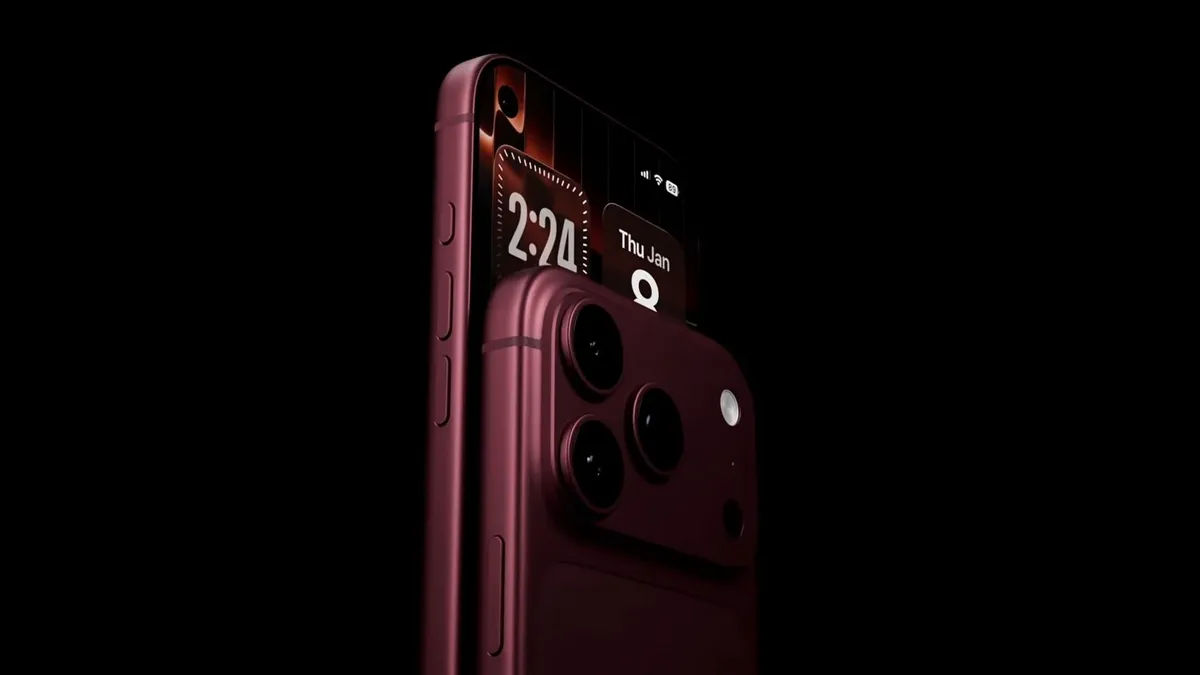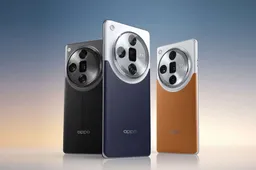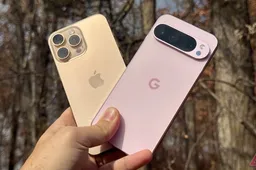G100 vs. Top Entry-Level Competitors: Which Smartphone Should You Pick?
SponsoredWednesday, 04 December 2024 at 06:47

When choosing a new smartphone, the decision often boils down to balancing performance, design, and features that cater to your personal needs. In this comparison, we’re putting the UMIDIGI G100 against the other popular smartphone—two solid contenders in the entry-level segment. Both phones boast impressive specifications, but how do they truly stack up against each other? Let’s take a closer look at the key differences and similarities between these devices to help you make an informed decision.
Design: Sleek and Slim with a Touch of Elegance
The UMIDIGI G100 and the contender both have a modern design, but the G100 stands out with its ultra-slim 8.1mm profile, making it slightly thinner than the contender, which measures 8.22mm. This difference may seem minimal, but for users who value a more sleek and comfortable grip, the G100 could have a slight edge.
In terms of color options, both brands offer eye-catching choices. The G100 comes in Rock Black, Interstellar Blue, Lake Green, and Starry White—each one exuding a futuristic vibe. On the other hand, the contender also offers a trendy set of colors like Midnight Black, Sage Green, Dreamy Purple, and Starry Blue. Both devices provide stylish choices for a range of personal tastes.
Display: Bigger and Smoother Viewing Experience
When it comes to display, both phones impress with 120Hz refresh rate screens, ensuring smooth scrolling and an enhanced viewing experience. The UMIDIGI G100 features a slightly larger 6.9-inch display, compared to the 6.88-inch screen of the contender. The difference is marginal, but for those who prefer a more expansive screen, the G100 might be a better choice. Both displays are capable of delivering sharp visuals and vibrant colors, making them great for gaming, media consumption, and browsing.
Battery Life: Longer-lasting Power
The battery is another area where the UMIDIGI G100 shines. With a robust 6000mAh battery and 20W fast charging, the G100 promises longer endurance and quicker recharges. Whether you’re a heavy user or someone who needs to rely on your phone throughout the day, the G100’s larger battery capacity ensures you’re less likely to run out of power quickly.
On the other hand, the contender comes with a 5160mAh battery, coupled with 18W fast charging. While still a solid option, the smaller battery size combined with slightly slower charging speed may be less appealing to those who need power throughout their day.
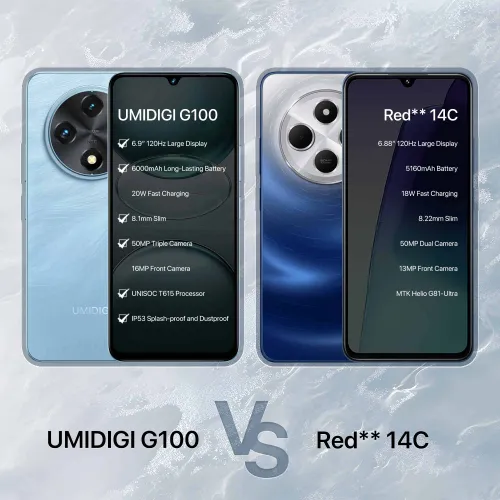
Camera: Ultra-Clear Photos with Advanced Features
Both devices offer 50MP main cameras, ensuring high-quality photos in a range of conditions. However, the UMIDIGI G100 goes a step further with its 50MP ultra-clear triple camera system, giving you versatility with additional lenses for enhanced zoom, depth effects, and macro shots. The 16MP front camera ensures high-quality selfies, which is a plus for social media enthusiasts and content creators.
The contender, meanwhile, comes with a 13MP front camera—a solid option, but not as high-resolution as the G100’s front camera. While both phones offer similar camera resolution on their main lenses, the G100 provides a more feature-rich photography experience with its triple-camera setup.
Performance: Speed and Efficiency at the Core
Both smartphones offer up to 8GB of RAM with 8GB extended RAM for improved multitasking. While the contender runs on the MediaTek Helio G81-Ultra processor, the UMIDIGI G100 is powered by the UNISOC T615 Octa-Core processor. While the MediaTek chipset is known for decent performance, the UNISOC T615 is optimized for power efficiency and smoother gaming performance in this price range.
For general tasks like browsing, social media, and light gaming, both devices will perform similarly. However, the G100 may have a slight edge when it comes to handling demanding apps and games due to its processor's efficiency.
Additional Features: Convenience and Connectivity
Both phones come with useful features like NFC, enabling seamless payments and easy pairing with compatible devices. They also feature dual unlock options, combining facial recognition and fingerprint sensors for added convenience and security.
The UMIDIGI G100 takes things further by including an FM radio, which may appeal to users who still enjoy traditional radio broadcasting, while the contender lacks this feature.
Pricing and Value for Money
When it comes to pricing, both the UMIDIGI G100 and the contender offer excellent value for their respective price points. The G100 provides a larger battery, better camera system, and a sleeker design at a competitive price. On the other hand, the contender might appeal to users who prioritize a well-known brand and a slightly more compact form factor.
Which Should You Choose?
Both the UMIDIGI G100 and its competitor pack impressive features, but the G100 stands out in terms of battery life, camera quality, and design. With its larger display, longer-lasting battery, and more advanced camera system, the G100 delivers greater value, making it the ideal choice for those seeking a feature-rich, budget-friendly device.
Popular News
Latest News
Loading

